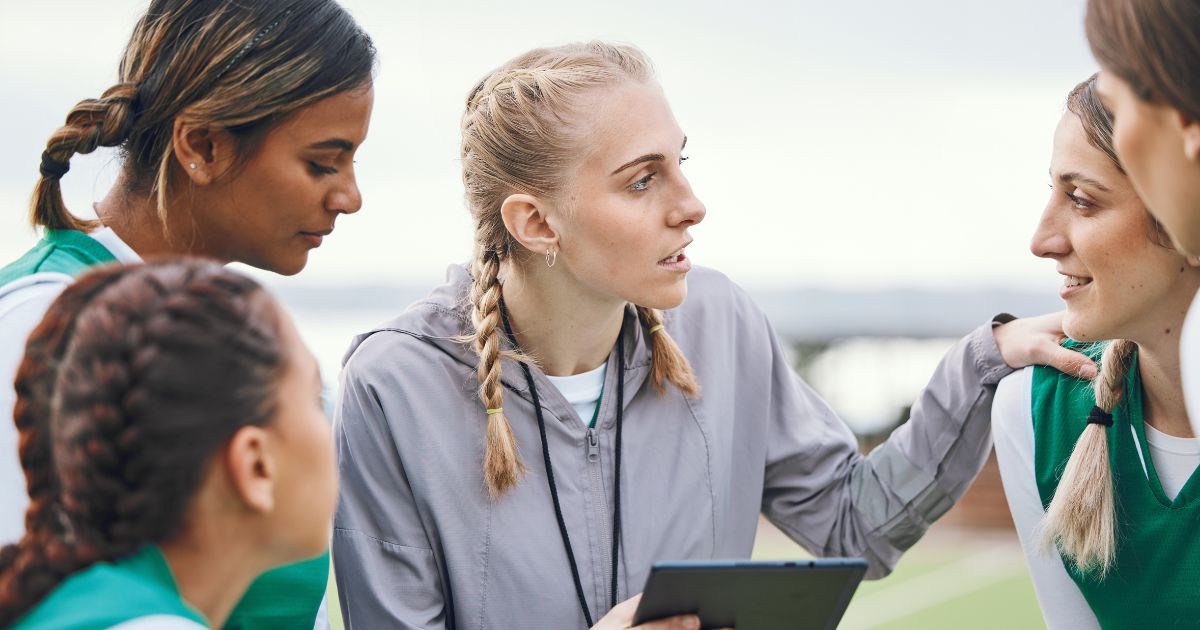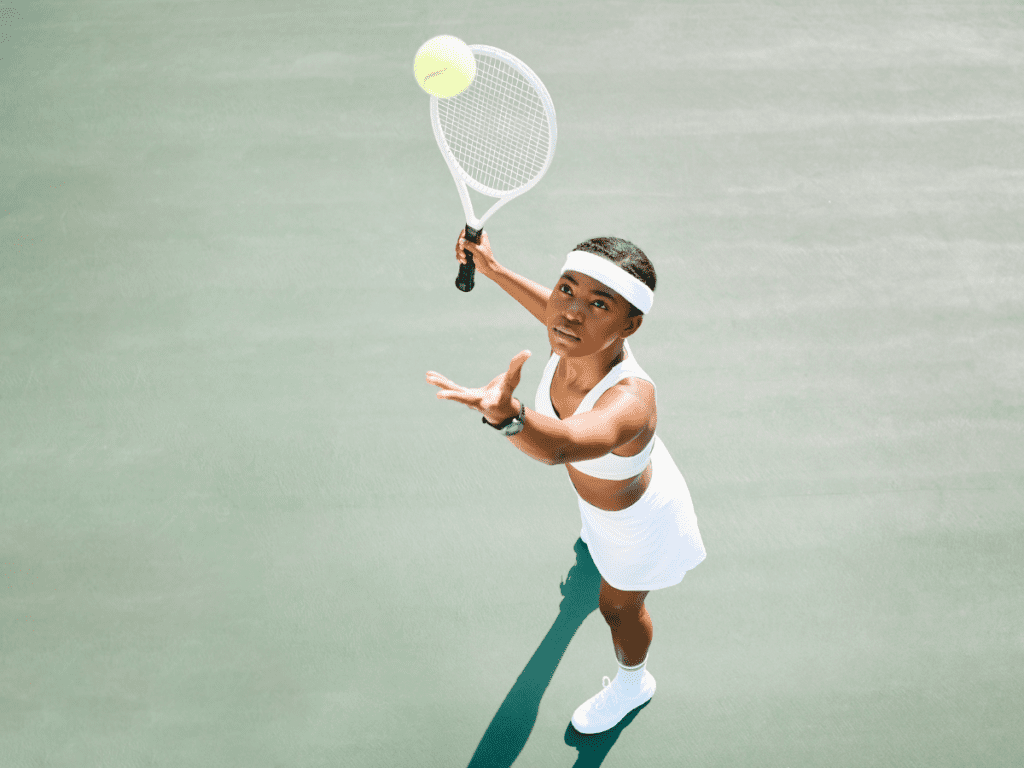
Many different factors need to be considered to provide optimal development experiences for athletes. The supports and skills needed to promote lifelong sport engagement and the potential to achieve high performance go beyond the physical and sport-specific. In fact, the knowledge, attitudes, attributes and skills that promote athletes’ mental performance, mental health, relationship quality, and social well-being are foundational components of athletes’ long-term physical and sport-skill development.
The role of mental and social processes in athlete development and sport performance has been the focus of recent updates to Sport for Life’s Athlete Development Matrix (ADM). Like Own the Podium’s Gold Medal Profile (GMP), the ADM is a tool that National Sport Organizations (NSOs) can use to identify the capabilities (types of knowledge, attitudes, attributes and skills) that athletes need at varied stages of development. While the ADM is focused on the capabilities needed to support optimal long-term development in sport across the lifespan, the GMP identifies the capabilities that athletes need to step onto the Olympic, Paralympic or Senior World Championship podium.
In the updated version of the ADM, the mental and social domains are now more closely aligned with the Gold Medal Profile for Sport Psychology (GMP-SP; Durand-Bush et al., 2023). The GMP-SP is “based on the most recent research and provides valuable guidance for practitioners and professionals working closely with athletes, enhancing their capacity to nurture peak performance.”
Read an executive summary of the Gold Medal Profile for Sport Psychology
Updates to the ADM also included intentional efforts and collaboration between Sport for Life, Own The Podium, and the Coaching Association of Canada to align the language and frameworks used across the Canadian sport system. These efforts are intended to provide NSOs with consistent information and easy transitions with respect to the focus of programming and supports needed from the early stages of sport participation to the high performance context.
This article aims to share the basic information NSOs need to understand and implement the upcoming updates to the ADM.
Mental health and mental performance in the ADM and GMP
Mental capabilities refer to specific types of knowledge, skills, attributes, and attitudes that people use to process information, emotions, and cues in the world around them. These processes regulate what we think, feel, and do, and help us to plan, evaluate, adapt, and stay on task when working towards our goals, values, and ideals. They also play an important role in the way we view and value ourselves and others.
The mental domain of the ADM and the GMP-SP (Durand-Bush et al., 2023) are intended to promote 2 key outcomes for developing athletes:
- Mental performance: The capacity to use cognitive processes and mental capabilities to strive for and achieve goals in a constantly changing environment (Durand-Bush & Van Slingerland, 2021).
- Mental health: A state of well-being that enables people to cope with the stresses of life, realize their abilities, learn well, and work well, and contribute to their community (World Health Organization, 2022).
There are 8 mental capabilities included in the ADM, which map onto the 3 fundamental and 4 self-regulation competencies identified in the GMP-SP (Durand-Bush et al., 2023). The fundamental competencies in the GMP-SP are motivation, confidence, and resilience. The self-regulation competencies are self-awareness, stress management, emotion and arousal regulation, and attentional control. The ADM includes one additional capability (decision-making), which provides the cognitive foundation needed to develop technical and tactical skills. Decision-making is a component of the sport technical-tactical domain of the GMP.
The mental capabilities in the ADM are:
- Motivation management: The ability to identify and engage in strategies that serve to optimize an athlete’s motivation (an internal state that drives and directs their behaviour toward a desired goal or away from an unwanted outcome).
- Confidence building: The ability to identify and engage in strategies that increase an athlete’s confidence (a state of self-belief or certainty in one’s ability to be successful) in a specific area.
- Resilience: The ability to overcome challenges or setbacks and recover quickly, or “bounce back.” This includes the ability to function in a regular or healthy way during periods of adversity.
- Self-awareness: The ability for an athlete to focus on themself and how their actions, thoughts, or emotions do or don’t align with their internal standards.
- Stress management: The ability to anticipate, identify, and respond to stressors in a way that harnesses eustress (stress that feels challenging yet manageable) and alleviates distress (stress that the athlete is unable to manage or cope with) to prevent or reduce negative effects on mental health and performance.
- Emotion and arousal regulation: The ability to effectively understand, manage, and respond to arousal (an athlete’s level of physical and psychological activation) and emotions.
- Attentional control: The ability for an athlete to deliberately direct their attention toward something (like a person, object, or cue) to perform a skill or task. In other words, attentional control refers to an athlete’s ability to focus.
- Decision-making: The ability to make a decision or choice through the process of identifying and assessing the available options. The outcome of decision-making is a choice that involves committing to a course of action.
Well-developed mental capabilities, which are sometimes called internal, psychological, or intrapersonal capabilities, nurture participants’ motivation, confidence, and resilience. In doing so, they lay the groundwork for holistic development that fosters long-term engagement in sport and physical activity.
The role of social connections and social well-being
Social capabilities refer to specific types of knowledge, skills, attributes, and attitudes that people use to develop and maintain healthy relationships, communicate effectively with others, foster welcoming and inclusive environments, and lead in positive and facilitative ways. These capabilities promote positive, respectful interactions between athletes and their teammates, competitors, coaches, officials, parents or guardians and others in the sport environment.

Social capabilities, which are sometimes called interpersonal capabilities, help to create safe, productive environments that are conducive to learning, growth, and performance. Like the mental capabilities, they play a vital role in protecting and promoting athletes’ mental health and mental performance, while also contributing to social well-being.
- Social well-being: The ability to build and maintain healthy relationships and have meaningful, authentic interactions with others where you can freely be yourself (Keyes, 1998).
The ADM specifies 4 higher-level capabilities that contribute to mental health and social well-being in sport. The social capabilities in the ADM map directly on the 4 interpersonal competencies identified in the GMP-SP (Durand-Bush et al., 2023): communication, relationship building, teamwork, and leadership. In the GMP-SP, ”relationship building” is focused specifically on the coach-athlete relationship, while the ADM is focused more broadly on all relationships in sport (including with teammates, peers, coaches, instructors, and parents or guardians).
The social capabilities in the ADM are:
- Communication: An athlete’s ability to convey or exchange information, thoughts, and messages with others verbally (through speech) and nonverbally (for example, through body language, gestures, and facial expressions).
- Relationship building: An athlete’s ability to establish and maintain positive, supportive relationships with others in the sport environment, including teammates and other group participants, coaches, instructors, and volunteers.
- Teamwork: An athlete’s ability to effectively contribute to collaborative group efforts that maximize the group’s chances of achieving its goal or purpose.
- Leadership: An athlete’s ability to influence or guide others to reach their potential and achieve a common (group or team) goal. Athletes can act as both formal and informal leaders in sport.
A foundational element of the social capabilities is communication. Effective communication is the cornerstone of relationship building, teamwork, and leadership. Collectively, the social capabilities promote positive, respective interactions between athletes and others in the sport environment. They also contribute to welcoming and inclusive sport spaces and are important assets to achieve podium performances.
The capabilities presented here use different language and terminology from past versions of the “social connections” domain of the ADM (which included communication, contribution and fostering belonging) but reflect similar concepts and ideas. The shift in language is intended to better align concepts across frameworks used within the national sport system, including the National Coaching Certification Program (NCCP) and the GMP, while also ensuring clarity and credibility in the language used.
A holistic approach to athlete development and performance
It’s important for us to emphasize that the mental, social, physical, and sport technical-tactical capabilities are interrelated. They are not independent from one another, or from the social and cultural context that surrounds each athlete.
For example, mental capabilities focused on self-regulation (a person’s ability to understand and manage their thoughts, emotions and behaviours) play a crucial role in learning and skill development, enabling athletes to effectively plan how they will execute a skill or task, self-monitor their performance, and reflect on how it went to evaluate and adapt their approach on the next attempt. Aspects of self-regulation, including the ability to understand, manage, and respond to emotions, also influence social capabilities by supporting athletes’ ability to interpret and respond to cues from others in the social environment.
Importantly, how a person interprets and acts on the thoughts and emotions they experience, or what others say and do, is influenced by the social norms and culture that surrounds them. Culture broadly includes the shared values, beliefs and practices of an identifiable group of people, which includes (but is not limited to) groups based on race, ethnicity, spirituality, (dis)ability, gender, sexuality, nationality, and language. It can also include groups based on where a person lives, works, or goes to school, or the activities they engage in (like a sport team).
In some cultures, for instance, making direct eye contact with another person shows confidence and attentiveness. In other cultures, it’s considered aggressive and confrontational. Knowing an athlete’s cultural background, values and beliefs is necessary to promote effective communication and a learning environment that supports their overall development.
As a person-centred model of athlete development, the ADM is not intended to be prescriptive in nature. Rather, the focus of development is on the person first, including each athlete’s unique identity, needs, preferences and abilities. The capabilities proposed in the ADM provide a flexible guide from which sport organizations and practitioners can select and adapt based on what an athlete needs to develop optimally.
Concluding thoughts and next steps
Mental and social capabilities work in tandem with physical and sport technical-tactical capabilities to promote a holistic approach to athlete development and performance. Sport for Life is currently reviewing and revising the physical and sport technical-tactical components of the ADM. This includes working with Own The Podium to align the content in the physical, technical, and tactical domains of the GMP, and working with Coaching Association of Canada to align with the athletic abilities described in the NCCP curriculum. The updated frameworks will be shared with NSOs in the coming months. You can learn more about Sport for Life, Own The Podium, and the Coaching Association of Canada by visiting their websites.